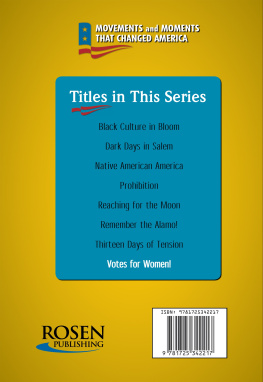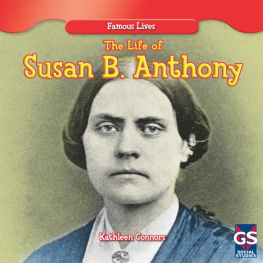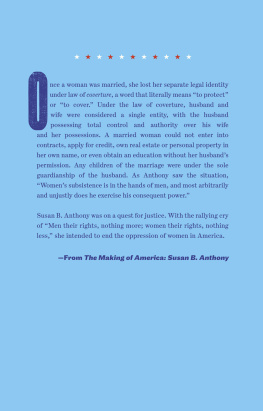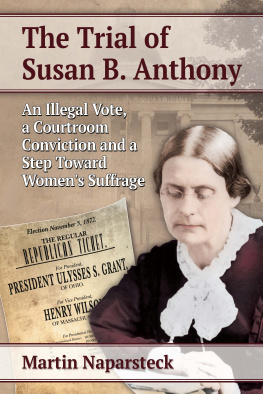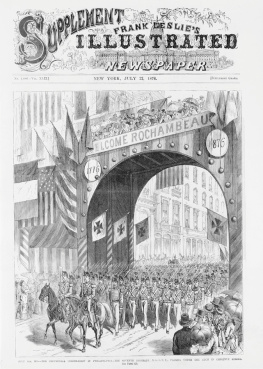


Published by The History Press
Charleston, SC
www.historypress.net
Copyright 2018 by Jennifer Chambers
All rights reserved
First published 2018
e-book edition 2018
ISBN 978.1.43966.392.9
Library of Congress Control Number: 2017958372
print edition ISBN 978.1.62585.978.5
Notice: The information in this book is true and complete to the best of our knowledge. It is offered without guarantee on the part of the author or The History Press. The author and The History Press disclaim all liability in connection with the use of this book.
All rights reserved. No part of this book may be reproduced or transmitted in any form whatsoever without prior written permission from the publisher except in the case of brief quotations embodied in critical articles and reviews.
The young women of today, free to study, to speak, to write, to choose their occupation, should remember that every inch of this freedom was bought for them at a great price. It is for them to show their gratitude by helping onward the reforms of their own times, by spreading the light of freedom and of truth still wider. The debt that each generation owes to the past it must pay to the future.
Abigail Scott Duniway
I declare to you that woman must not depend upon the protection of man, but must be taught to protect herself, and there I take my stand.
Susan B. Anthony
When we all see justice, we all see peace.
Michael Franti
I hope to teach my children that everyone struggles, but it matters that you persist. No matter what. The people I write about keep going. They have faith. They work for what matters. They show up. I could teach my kids nothing better than to emulate that.
I couldnt do anything I do without the incredible support and love of my husband and children. This bookand everything I doI owe to them.
JBC
CONTENTS
PREFACE
EXCERPT FROM ABIGAIL SCOTT DUNIWAYS THE DESTINY OF OUR REPUBLIC, OCTOBER 5, 1874
Friends, this testimonial of your presence this evening almost overpowers me. As I stand here, I look back through the dim vista of almost a quarter of a century to the days when I first landed, a young girl, a stranger in this our beautiful State, then a Territory. Then rapidly my mind flashes across the intervening years to the short time that has marked my public life. Three years ago I was almost wholly unknown outside of the little circle of my family and friends who had known me from childhood.
And it is, indeed, meet that we, their children, descendants of those hardy pioneersourselves yet pioneers, who have wandered across the unbeaten tracks of the Western wilds and pitched our tents upon this distant shore of the bracing and breezy Pacificit is indeed meet that we should pause in the hurry and worry of everyday existence and drop a tear to their memory, chant an anthem of praise to their heroic patriotism, and sing a deep and solemn dirge over the graves of those who fell battling in the foremost ranks of liberty that we, their children, might enjoy the priceless boon of freedom and the peerless blessings of education and religion, which they gladly laid down their lives to bequeath to us.
It is idle for me to spend time in talking to you, my friends, tonight, about that occurrence in our history of which every American patriot in whose heart burns the fire that lights the flames of liberty has sung while chanting hymns of praise to freedom.
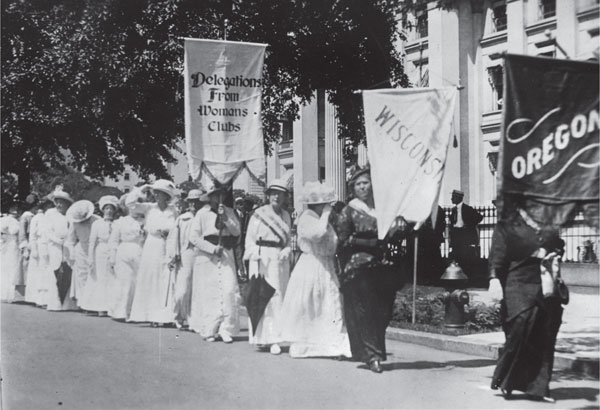
Women, including those representing the state of Oregon, in a suffrage march in Washington, D.C., 1913. Library of Congress.
But when we look abroad over our country, and see that, despite its many beautiful surroundings and glorious possibilities, there is yet so much of suffering to alleviate, so much of ignorance to overcome, so much of prejudice to destroy, so much of materialism and coarse selfishness and avarice and misery among us, we feel that there is indeed work for the philanthropist that takes on gigantic shapes and stirs the soul of the deepest and most thoughtful humanitarian to its profoundest depths.
Glance abroad over our country and you find that we have jails and gibbets, and penitentiaries and almshouses and asylums for the insane. You find, too, that we have need of these. You find, too, the wretched drunkard going down to ruin, while all manner of legalized temptations are suffered to lie in wait for the unwary, and beguile the weak into error and crime. And shall we as a people, forget these, the lowliest of Gods children? Shall we cloak ourselves about with a mantle of our own self-righteousness, and, because our lines have fallen to us in pleasant places, consider it beneath ourselves to look down upon those children of Almighty God who may need our uplifting care? Shall we not rather feel that it is not beneath us to stoop to lift the fallen, to strengthen the weak, to encourage the timid, and to help the faltering upon lifes rugged highway? Our countrys destiny should point us not so much to our future financial greatnessnot so much to grand piles of architecture, monumental structures of human greatness that shall live in the annals of history long after we shall have passed awayshould point not nearly so much to our grand system of railroads and telegraphs and to everything that betokens a high state of rapid life and rapid civilization, as it should point to the necessity that the human mind shall reach out and grasp after the possibilities that are ever clustering around the humblest son and daughter of God.
We, as a people, have become so engrossed in the mad search for gain, that we have forgotten too often to look from our own fancied greatness as a Republic down into the lower strata of human life, and cast about us to see whether or not it may be possible to benefit those who are not so well situated as ourselves. And we, too, have grown so sordid and selfish, the most of us, that we are too apt to look down upon those who have been imbued with humanitarian ideas, and dared to work accordingly.
We are often told that if we would be happy, we must be good; and while I know that there is much truth in this idea in the abstract, yet let us cast about us and see if there is not much human destiny that is attributable not so much to mans want of goodness as to his want of happiness; and then, having seen that the reason why so many people are not good is because they are not happy, let us see if there is not a reason why they are not happy which the humanitarian can reach; and, reaching, apply it to those whom he may have opportunity to benefit. It is very easy for the man or woman who is surrounded with everything that makes life pleasant and agreeable to be good. We naturally feel, when the world goes smooth with us, and our neighbors treat us well, and our friends respect us, it is very natural, I say, for us in circumstances like these to feel that after all we are walking in about the right way, and then we are thoroughly satisfied with ourselves.
Now, let the same human being who is thus so good, genial, pleasant, comfortable, and affable, be suddenly deprived of house and lands, of home and family and kindred, and be thrown out upon the cold charity of the world, penniless, suffering and destitute; such as is the case with nine-tenths of the people of this great Republic who go first into the pathways of crime. Let us suppose that one of these good men or good women who never has been seriously tempted, never has seriously gone astray, is suddenly placed in one of the worst conditions of destitution. Think you when the pangs of hunger take hold upon the vitals, when the storms of heaven beat pitilessly upon the uncovered head, when it seems that human sympathy and human agency have gone from him, think you that he would not then be very likely to break some of the great commandments which all his life before he has found it easy to live up to? I think that we too often lose sight of this consideration when we would censure those who go astray.
Next page


